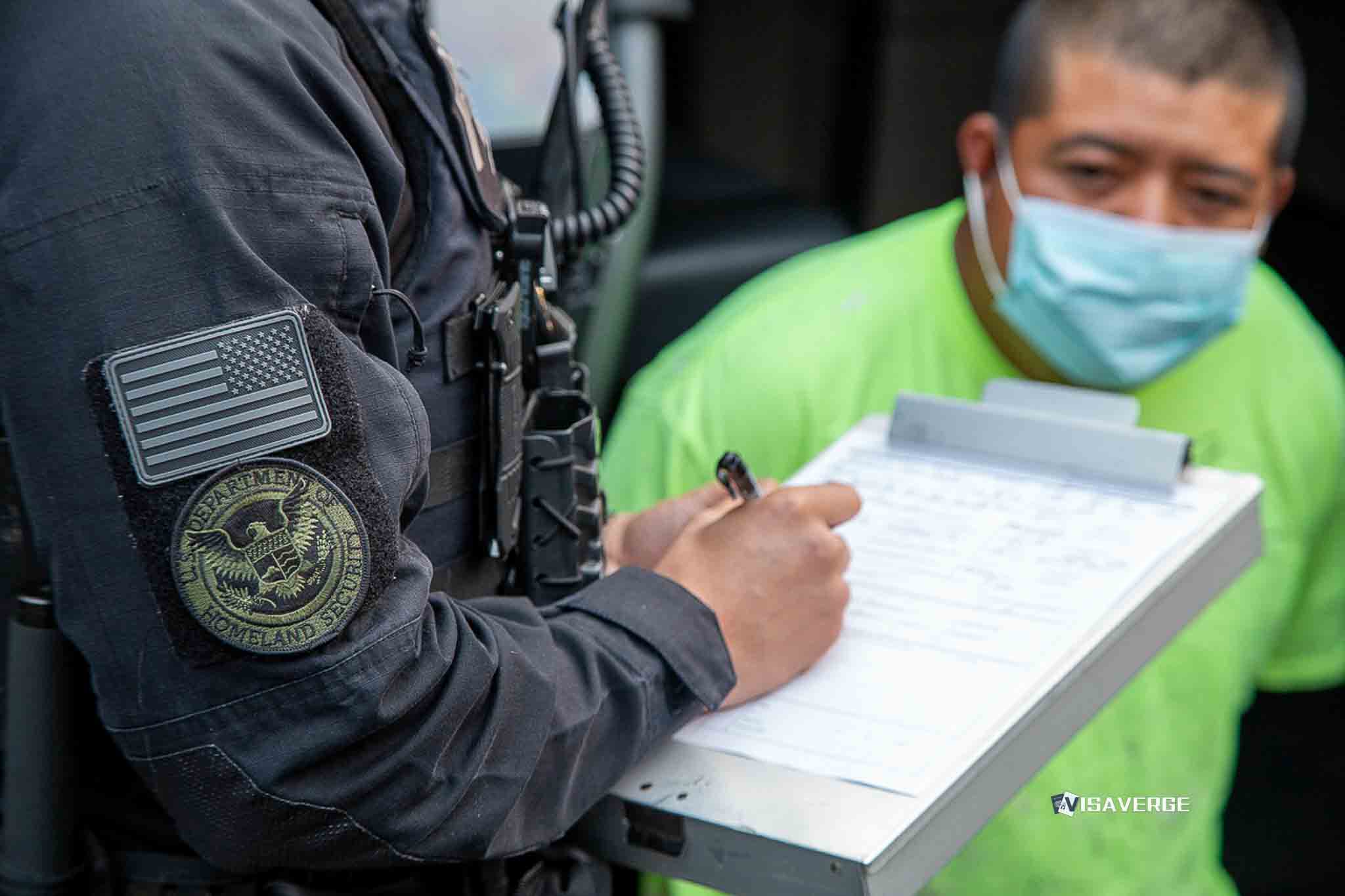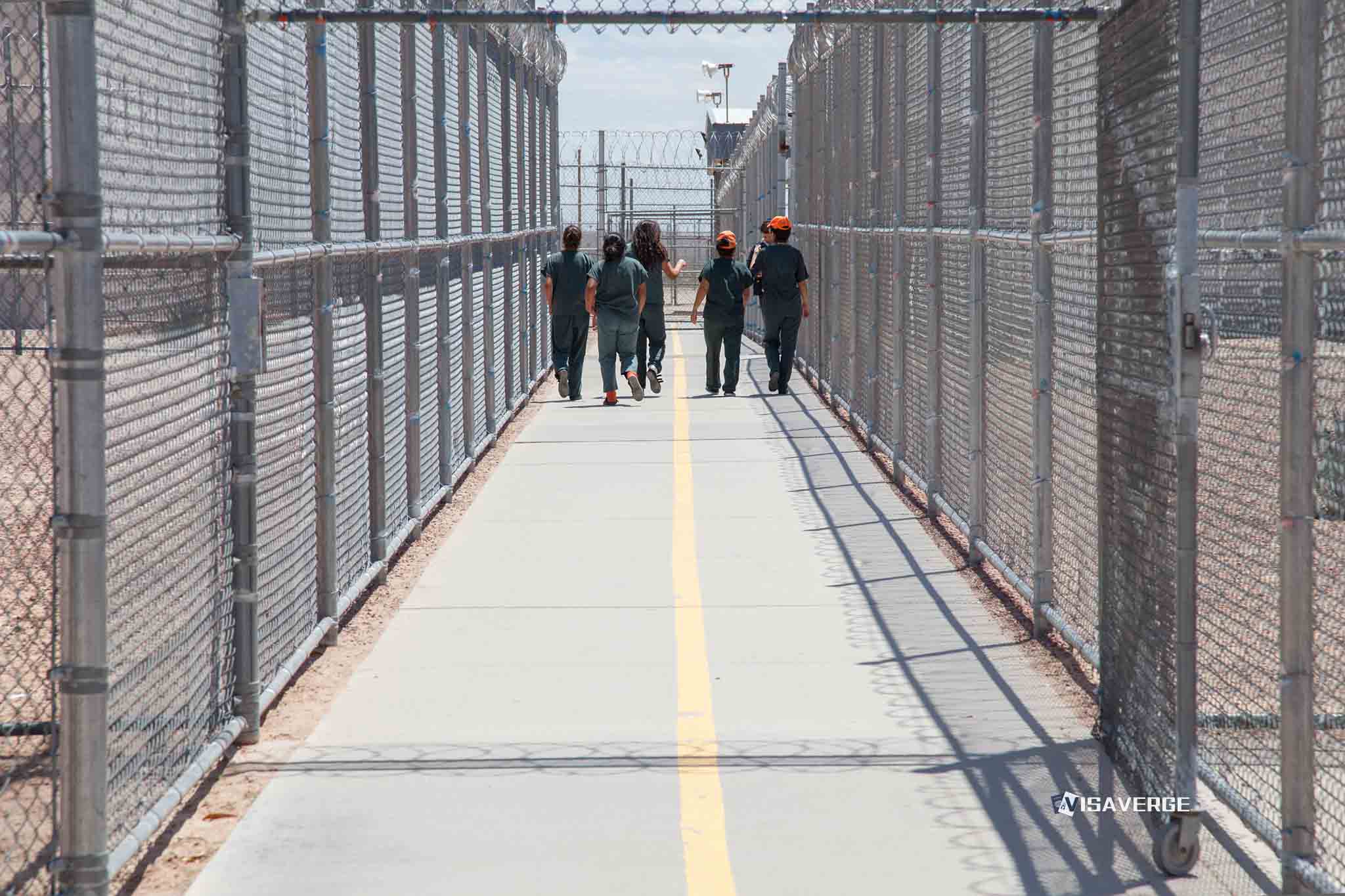A growing number of family members of U.S. service members and veterans face detention and deportation in mid-2025, drawing urgent pleas from Congress and advocates. Cases involving spouses and parents show how enforcement decisions strain military households and upend daily life.
Human stories that illustrate the toll

The detention of Paola Clouatre, wife of Marine Corps veteran Adrian Clouatre, underscores the human cost. ICE detained her in June 2025, leaving Adrian — a service‑disabled veteran — to care for their young children while driving eight hours round trip to a rural Louisiana facility to visit her.
“I don’t know how to explain to the kids where mom is,” he told supporters, describing nights of worry and days of missed work. Advocates say her case is one of many involving military families with long community ties and no criminal records.
In Texas, the wife of an Army sergeant was deported to Honduras in June despite a clean record and prior permission to live and work in the United States. Her removal highlights the uncertain nature of parole in place, a program that can protect certain military family members but depends heavily on local USCIS office discretion. Even eligible applicants can be denied or delayed, particularly if there’s a past removal order.
“Citizenship errors should never cost a family its future.” — staff summary supporting tighter safeguards
Patterns and inconsistent practices
- Analysis by VisaVerge.com finds inconsistent local practices and sudden policy shifts have produced uneven results across regions.
- Some USCIS field offices grant parole in place readily; others deny it, especially when prior deportation orders exist.
- Recent pauses in legal assistance by some military branches have limited families’ ability to prepare strong applications.
Legislative responses on Capitol Hill
- Representative Salud Carbajal (D-CA) introduced a bipartisan package in June to shield servicemembers’ parents from deportation. This push followed the case of Juana Flores, mother of U.S. Air Force Sergeant Caesar Flores, who was deported and later allowed back on humanitarian parole after congressional and DHS intervention.
- Lawmakers estimate as many as 80,000 undocumented spouses and parents of active-duty and former servicemembers live in the United States, many with deep roots and U.S. citizen children.
- Representative Pramila Jayapal announced a bill in July to bar ICE from detaining or deporting U.S. citizens, responding to reports of wrongful arrests affecting veterans and even children.
Major enforcement changes and funding shifts
On July 1, the Senate passed a budget reconciliation bill that:
- Allocates roughly $170 billion into immigration enforcement and border security.
- Boosts ICE’s detention funding by 265% to about $45 billion.
- Triples enforcement and removal budget to nearly $29.9 billion.
- Expands daily detention capacity — potentially to about 116,000 — including new detention centers and family facilities.
Critics argue this surge prioritizes arrests and deportations over due process and legal representation, at a time when immigration courts face record backlogs.
Use of military installations and Project 2025 implications
- The administration has expanded the use of military bases (e.g., Fort Dix, New Jersey) for detention, with plans to detain thousands on installations nationwide and deploy National Guard troops to support ICE centers.
- Civil rights groups, including the ACLU, warn that detaining immigrants on military grounds increases secrecy and complicates access to lawyers, families, and medical care.
- Policy proposals tied to Project 2025 would widen expedited removal, allowing deportation without a full court hearing for certain people. Lawyers warn that faster removals risk sweeping up long-term residents and military family members who might qualify for parole in place or other relief.
Key stakeholders and positions
- Congressional advocates: Representatives Salud Carbajal, Darren Soto, Lou Correa, and Pramila Jayapal — pushing protections, ICE oversight, and intervention in urgent cases.
- DHS leadership: Under Secretary Alejandro Mayorkas, DHS has used humanitarian parole in a few high-profile cases, but enforcement remains forceful and aligned with the White House’s priorities.
- Civil rights groups: ACLU and others oppose the use of military sites for detention and expansion of expedited removal, citing due process and family separation risks.
- ICE and USCIS: ICE conducts arrests and removals; USCIS handles parole in place, with outcomes varying by local office and case history.
The program meant to help: Parole in place
- Parole in place is intended to assist certain undocumented spouses, parents, and children of U.S. citizens who are serving in the military, the Selected Reserve, or are veterans.
- It can allow beneficiaries to remain in the U.S. and, in some cases, adjust status without leaving.
- Approvals are discretionary and vary by field office. Prior removal orders frequently result in denials.
- For official guidance, see the USCIS military family options page and the Form I-131 (Application for Travel Document) instructions at: https://www.uscis.gov/i-131
Emotional and readiness impacts on families and forces
- Families report heavy emotional strain: parents missing births, birthdays, and milestones; infants without a parent’s care; veterans with service-connected injuries struggling to meet work and childcare demands while visiting distant detention centers.
- Children develop anxiety and sleep problems. Commanders worry about unit readiness when troops spend nights on the phone with lawyers and mornings in court.
What advocates and lawmakers are pushing for
- More protections and oversight of ICE.
- Greater access to legal representation and due process.
- Limits on use of military infrastructure for detentions.
- Legislation (Carbajal’s bills, Jayapal’s proposal) to provide statutory guardrails — though passage faces a divided Congress.
Practical steps for families trying to protect loved ones now
- Seek legal help early. A qualified immigration lawyer can assess eligibility for:
- Parole in place
- Cancellation of removal
- Reopening old orders
- Gather documents. Important items include:
- Proof of the servicemember’s status and deployments
- Disability ratings
- Marriage and birth certificates
- School and medical records
- Community support letters
- Contact congressional offices. They can intervene, request stays of removal, and elevate cases to DHS leadership.
- Maintain copies of filings and receipts. Bring them to ICE check-ins and keep digital backups.
- If served with expedited removal, request to see a supervisor and state fear of return if applicable — this can trigger a credible fear process.
Near-term outlook and broader stakes
The near-term outlook is tense. The House is expected to consider the Senate’s funding package, which could accelerate arrests and removals. While Carbajal’s and Jayapal’s proposals might provide guardrails, political divisions make outcomes uncertain.
Public pressure could prompt temporary fixes, such as increased humanitarian parole approvals, but the broader trend suggests more detentions and deportations unless laws or policies change.
“We kept our promise. We just want the government to keep theirs.” — a veteran’s spouse outside a detention center
The stakes extend beyond immigration policy to what military families believe the country owes them for their service. Personal stories — like those of Paola Clouatre and other separated families — continue to drive the debate and highlight the real-world consequences of policy choices.
This Article in a Nutshell








